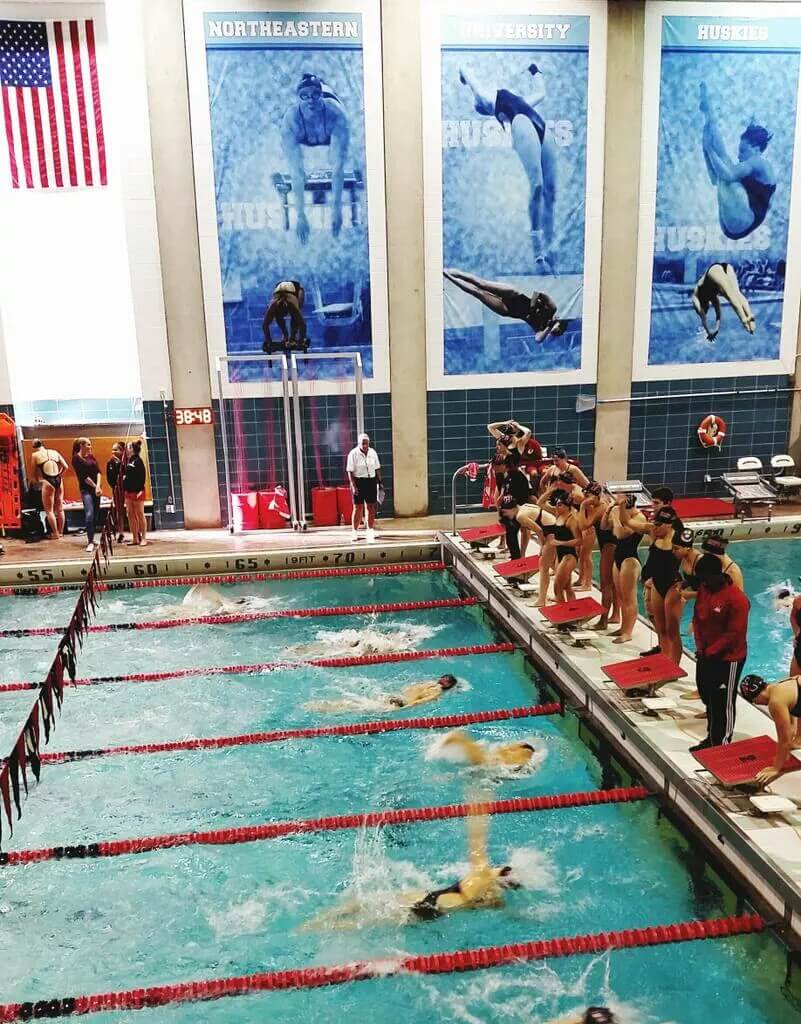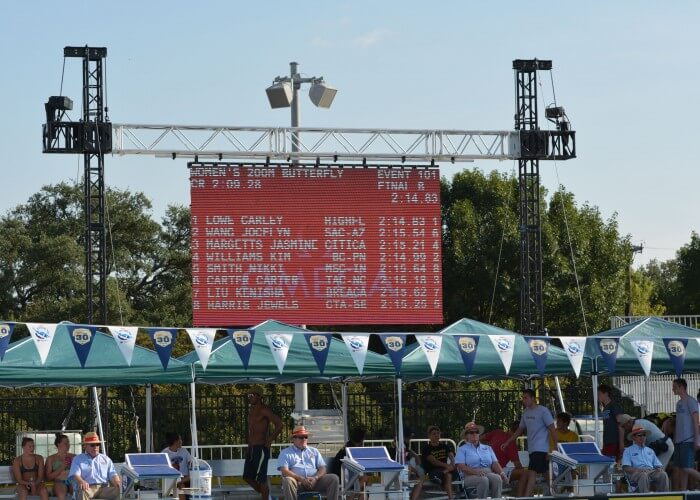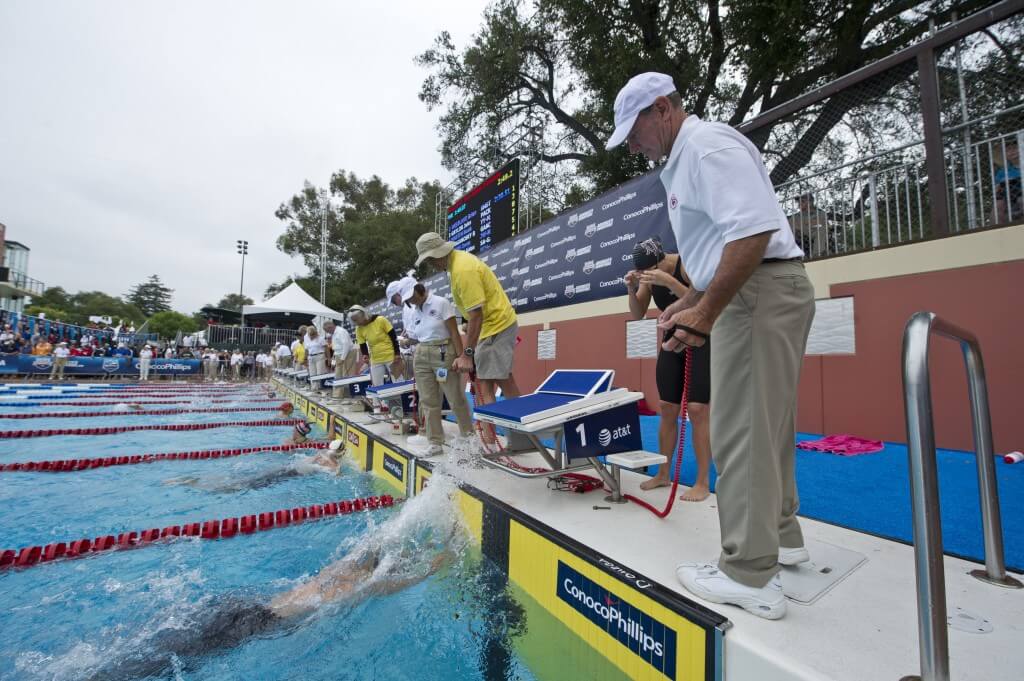Scoreboard Off at A Dual Meet?! The Benefits of Losing Track of Time

By Delaney Lanker, Swimming World College Intern
Arms spinning, feet kicking, a cheering crowd and teammates, it’s a close finish to the 400 medley relay. Instinctually, everyone looks to the clock to see who won, but this time, the scoreboard was dark.
On October 17, the scoreboard was turned off for the Northeastern vs Harvard scrimmage at NU’s Barletta Natatorium. The meet was still officially timed but the results were not being displayed real time.
“I wanted the team to focus on the process of swimming fast and stop worrying about the end result on the scoreboard,” Northeastern’s head swim coach Roy Coates said.
So, instead of a holding a stopwatch at the side of the pool, NU’s coaching staff had a pen and paper, taking notes on technique for every swimmer.
“Swimmers started concentrating more on how they want to swim the race, strategy wise, stroke count wise and underwater kicking wise,” Coates said. “It’s a natural reaction to throw those things out of the window to make the time as fast as you can.”
They say practice makes perfect, but sometimes in high pressure situations, it’s easy for swimmers to forget technique for the sake of speed.
“Having the scoreboard shut off was like a breath of fresh air,” Northeastern senior, Taylor Brew said. “It presented the opportunity to implement new things I’ve been working on in practice without worrying about how my time will be affected.”
Swimming is just as much a mental game as it is a physical one. Whether it’s a time standard for NCAAs, to make the championship team or simply be faster than the last meet, numbers can rule a swimmer’s mindset during a meet.
“It is easy for swimmers to get obsessive over their times to the point where it gets in their way,” sports psychologist and former swimmer, Adam Naylor, said. “A great swimmer needs to learn how to care about the clock, but truly concern themselves with what happens between the block and the final wall.”
Swimmers aren’t just a time on the clock. But many of us can let them make or break our outlook on the season.
“I think times define people. Swimmers think they are either doing terribly or doing great based off the time,” Coates said.
Over the years Brew has done her best to not let times distort her view of her swimming.
“I think as an athlete, it’s important to not always dwell and let one race affect the rest of your meet,” Brew said. “I always try to take not hitting my goal time as a learning experience, reflect on what I did well and focus on areas for improvement.”
Not every meet will have a blank clock to take the pressure off.
“We need to put our focus on our teammates and helping them to swim fast and worrying less about how to get yourself to swim fast,” Coates said. “You have to be mentally prepared for your race but beyond that, if you’re sitting around worrying about your race, you’re going to put a lot of pressure on yourself.”
Naylor, has three tips for swimmers to overcome the pressure and focus on times.
“Accept that time is part of the game, create a robust image of how you would like to swim, and develop a skill to physically settle the body.”
Visualize on what the race is going to feel and look like rather that just how fast you want to go and take some deep breaths before you get up to swim. And remember that times on the clock are part of the reason we love to race; make sure to focus on the fun of swimming.
“I trust that I did everything I could possibly do in and out of the pool and instead focus on my preparation for the race,” Brew said. “I’ve noticed that the less pressure I put on myself to go a certain time during my race, the faster I swim.”
Swimming isn’t all about the time on the clock and how fast you did or didn’t go. But, in this sport, it’s hard to remember that sometimes. So, maybe every once and a while, it’s a good thing to turn the scoreboard off and just swim.
“It was a reminder that swimming isn’t always about a series of numbers on a clock,” Brew said. “I was swimming for the love of racing and the sport, instead of some time standard I hold myself to.”






I have done this… It works especially well at beginning of season age group meets!
This is a great concept. Dr. Alan Goldberg told a story about a coach that would lie to athletes about their times. Successful athletes would get faster as the reported time got slower. Interesting psychological approach.
And when you have to time by hand ;-;
Mike Beeler